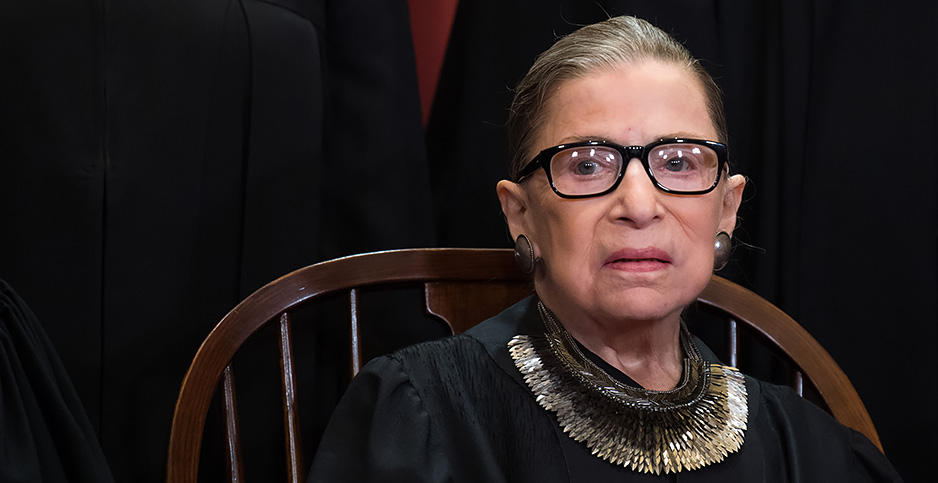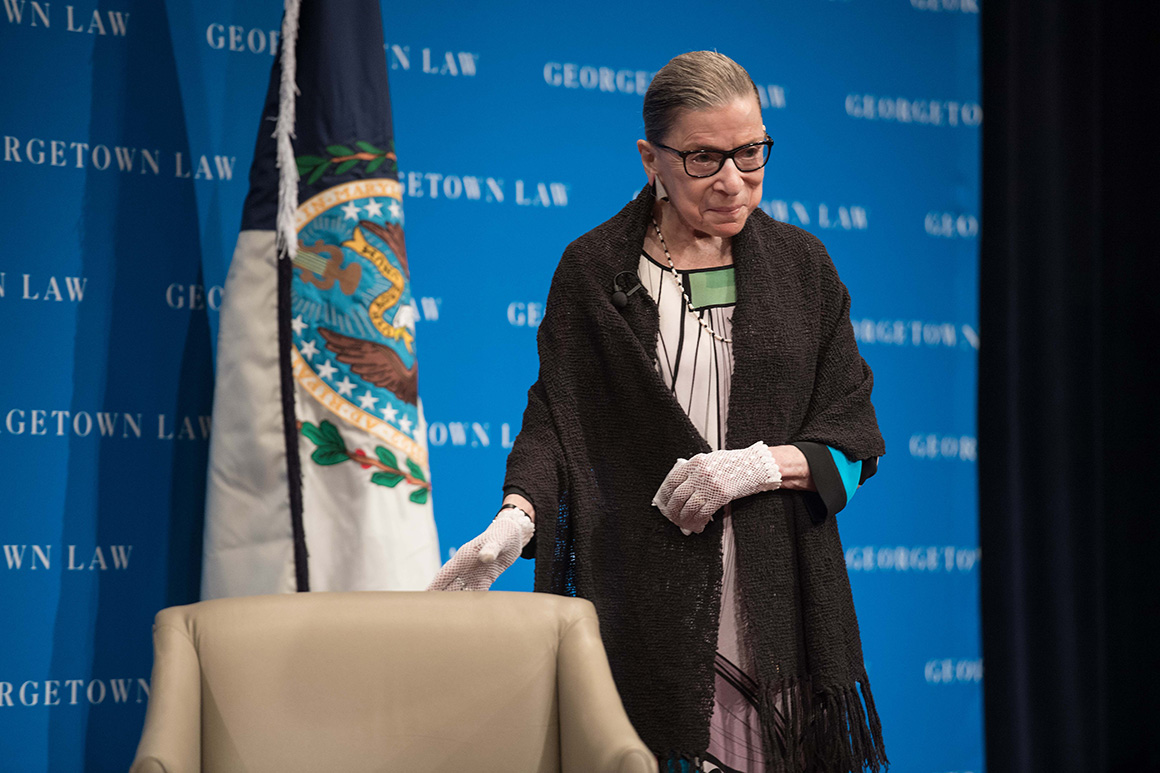Supreme Court Associate Justice Ruth Bader Ginsburg poses during the official Supreme Court group portrait in 2018. The passing of Supreme Court Justice Ruth Bader Ginsburg could shake the foundation of America’s bedrock environmental laws, leaving a chasm on the bench where once sat an environmental champion. Ginsburg, who died yesterday, was the Supreme Court’s longest-serving liberal justice and was best known for her advocacy on women’s rights. But she also played a critical role in opening courtroom doors to green groups and established broad interpretations of the Clean Air Act, Clean Water Act and other laws. Ginsburg’s passing and the court’s increasingly conservative leanings, experts warned, raise significant questions about the future of environmental law. “If the Trump administration is able to get her successor confirmed … it could mean that the environment always loses in the Supreme Court for a whole generation,” said Bob Percival, head of the University of Maryland’s environmental law program. Ginsburg was not an administrative law buff — her speciality and passion was civil procedure — but she was always engaged in environmental cases and frequently played a determinative role. “In the environmental cases, she often asked the questions that guided the final […]


Add a comment






